New DPN/DFP Poll on Democratizing Entrepreneurship
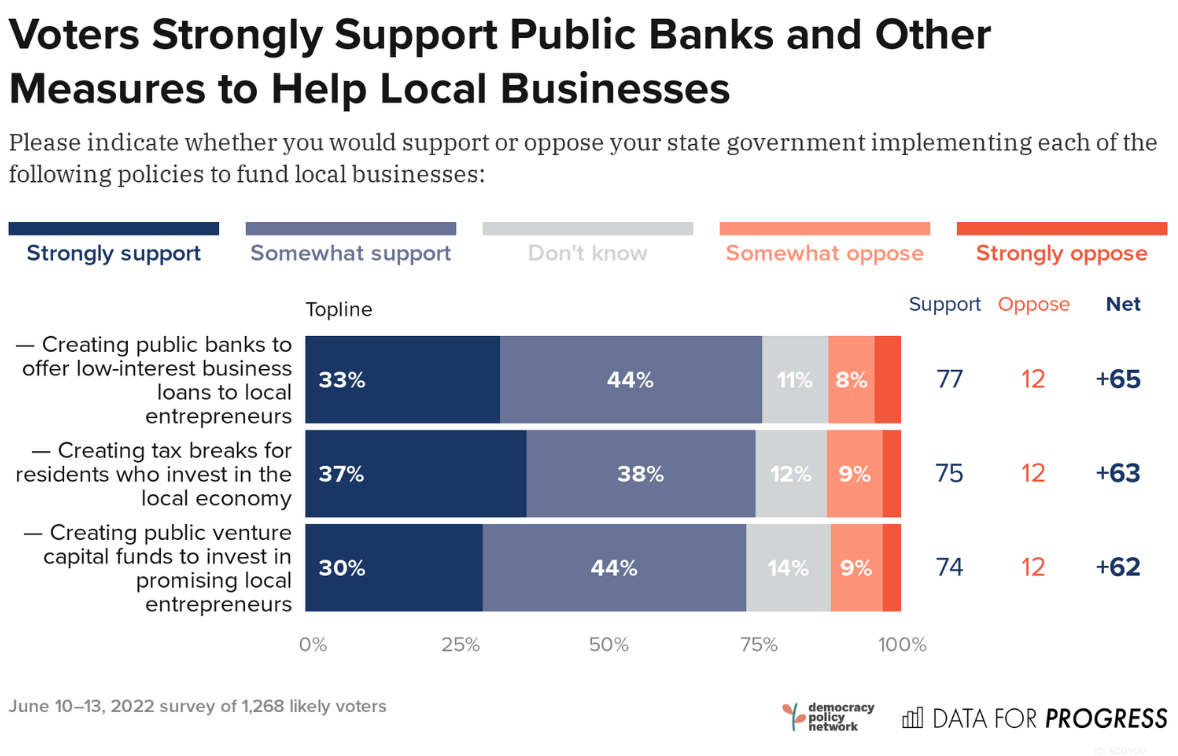
In the coming weeks, we at the Democracy Policy Network are releasing three kits about Democratizing Entrepreneurship — state policies to help make it easier for more Americans launch startups, coops, and other ventures.
American entrepreneurship is currently dominated by a narrow slice of the American population—disproportionately men born into family wealth and embedded in wealthy social networks centered in coastal cities. As one commenter wrote in a Hacker News in 2017:
Entrepreneurship is like one of those carnival games where you throw darts or something. Middle class kids can afford one throw. Most miss. A few hit the target and get a small prize. A very few hit the center bullseye and get a bigger prize. Rags to riches! The American Dream lives on. Rich kids can afford many throws. If they want to, they can try over and over and over again until they hit something and feel good about themselves. Some keep going until they hit the center bullseye, then they give speeches or write blog posts about ‘meritocracy’ and the salutary effects of hard work. Poor kids aren’t visiting the carnival. They’re the ones working it.
Democracy is not just about participation in state power—it is also about participation in economic power. And a key pillar of economic democracy (alongside other important pillars, such as labor power, social entitlements, public goods, and public enterprise) is ensuring that it is not only the wealthy and well-connected who can realize their ideas as ventures in the economy. Fortunately, there exist public programs, policies, and institutions that states can implement to democratize capital, know-how, and technology—and, in doing so, democratize entrepreneurship.
Stay tuned for three upcoming kits on dozens of promising state policy ideas for democratizing entrepreneurship. For now, we have partnered with Data for Progress to poll on some of the concepts and policies we are exploring in these upcoming kits.
And it turns out, across the country, across demographic groups, and across the partisan divide: Taking affirmative steps to democratize entrepreneurship — from public banks to public startup incubators to public venture funds — is very popular.
Read our blog post on the poll results below, cross-posted from Data for Progress' blog.
The High Road on Wealth and Job Creation: Americans Want Less Smokestack Chasing, More Local Entrepreneurial Ecosystem Support
By Pete Davis, Nourel-Hoda Eidy, and Grace Adcox
When state leaders discuss broadening prosperity, many focus on wooing large corporations to set up shop in their state — and to do so, trade low taxes, deregulation, and even public subsidies in exchange for jobs. This “smokestack chasing,” seen recently with Amazon’s HQ2 contest, is a dead end: Public coffers are emptied, workers and consumers are harmed by deregulation and union busting, and the promised job growth is often neither sustainable nor generative.
Progressives need to provide an alternative vision to state leaders for local wealth creation and job growth.
Redistributing wealth within existing state businesses (increasing the share of income going to labor via labor regulations and unionization support) and through state entitlement programs and public goods is a large part of this vision. But these efforts still do not address the question of how states generate new businesses, jobs, and sources of local wealth creation.
One pillar of an alternative to smokestack chasing can be the state government actively working to cultivate local entrepreneurial ecosystems: creating institutions, funding streams, and public programs that affirmatively help residents launch local businesses and cooperatives. Under this vision, instead of providing tax breaks, union-busting support, and deregulation to distant corporations, states could launch: public venture capital funds; public banks; state networks of public startup incubators, accelerators, and makerspaces; local business and coop procurement programs; local crowdfunding investment portals; public university research and development partnerships; open extension courses at public universities; government-startup liaisons; and more to support local startup and coop founders. Such a vision of affirmatively building infrastructure to democratize local entrepreneurship and grow local, generative startup and coop networks can provide a stark contrast to the dominant job-creation vision of racing to the bottom to attract megacorporations to relocate in exchange for a few hundred unsustainable jobs.
When presented with the choice of which vision to support for local wealth and job creation — smokestack chasing or local entrepreneurial ecosystem support — Americans strongly prefer the latter.
Polling conducted by Data for Progress with the Democracy Policy Network finds around half of likely voters (47 percent) believe their states are currently not providing enough startup support to local businesses.
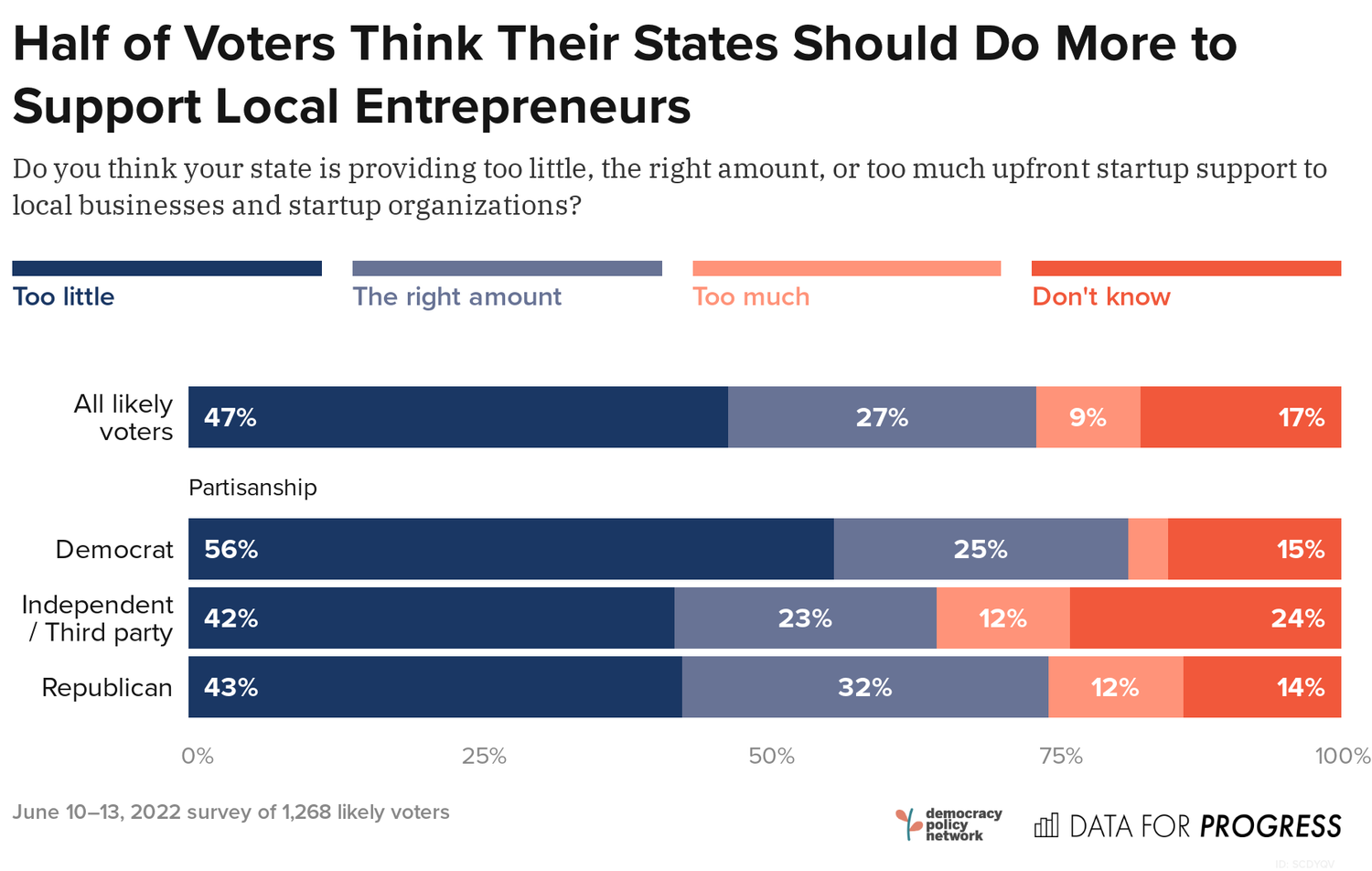
When it comes to competition between local startups and large corporations, American voters believe it is important that state governments play a more active role in leveling the playing field. Overall, 78 percent of voters believe it is “somewhat” or “very important” for states to step up to this role, including 83 percent of Democrats, 79 percent of Independents, and 74 percent of Republicans.
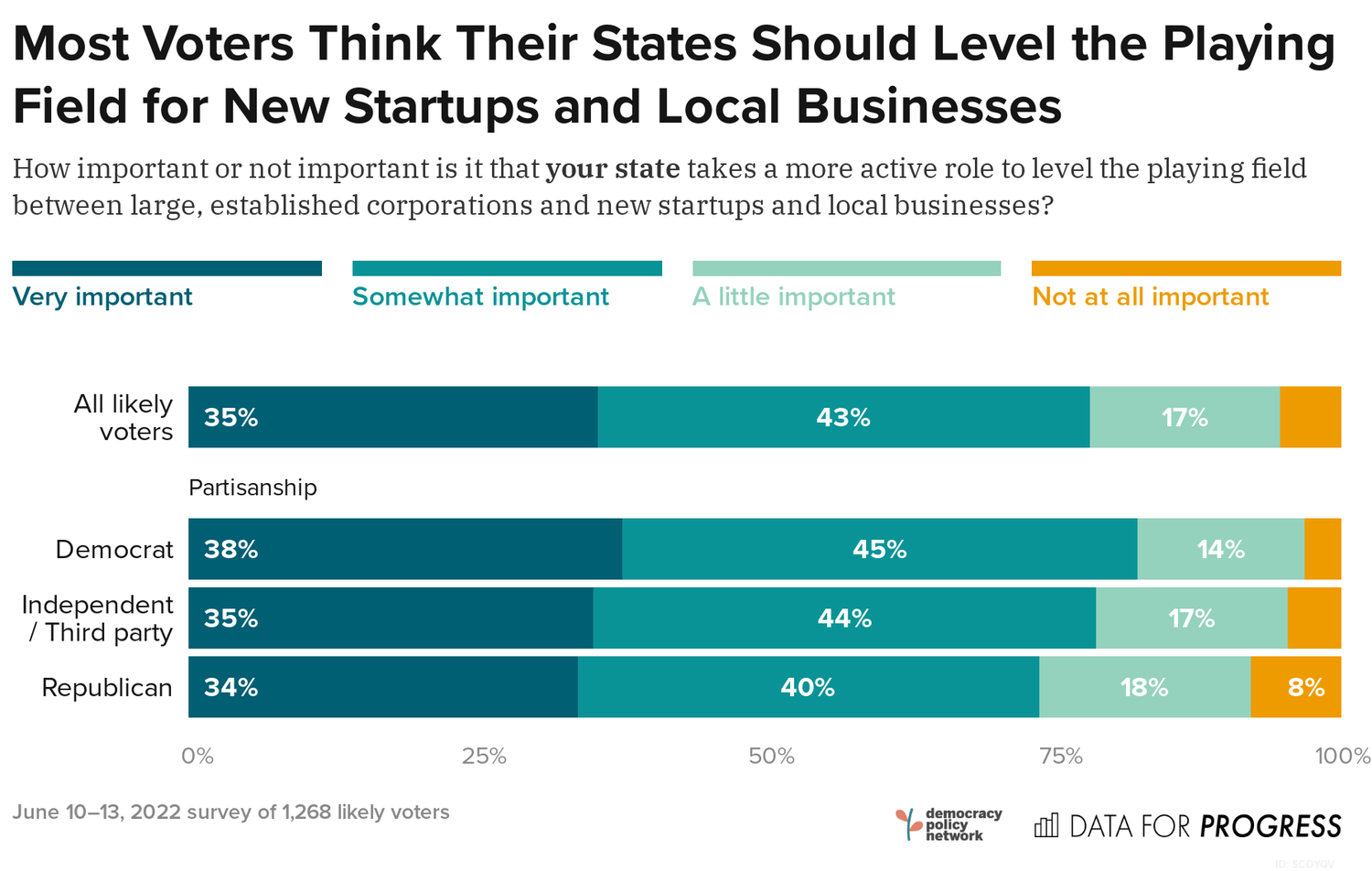
Turning to the question of how states can provide support to aid entrepreneurs, voters offer their endorsement to a number of policies. Across partisan identity, voters widely favor (87 percent in support) proposed state programs to provide resources and advice to aspiring local startup founders, with 90 percent of Democrats and 90 percent of Republicans in support, as well as 81 percent of Independents.
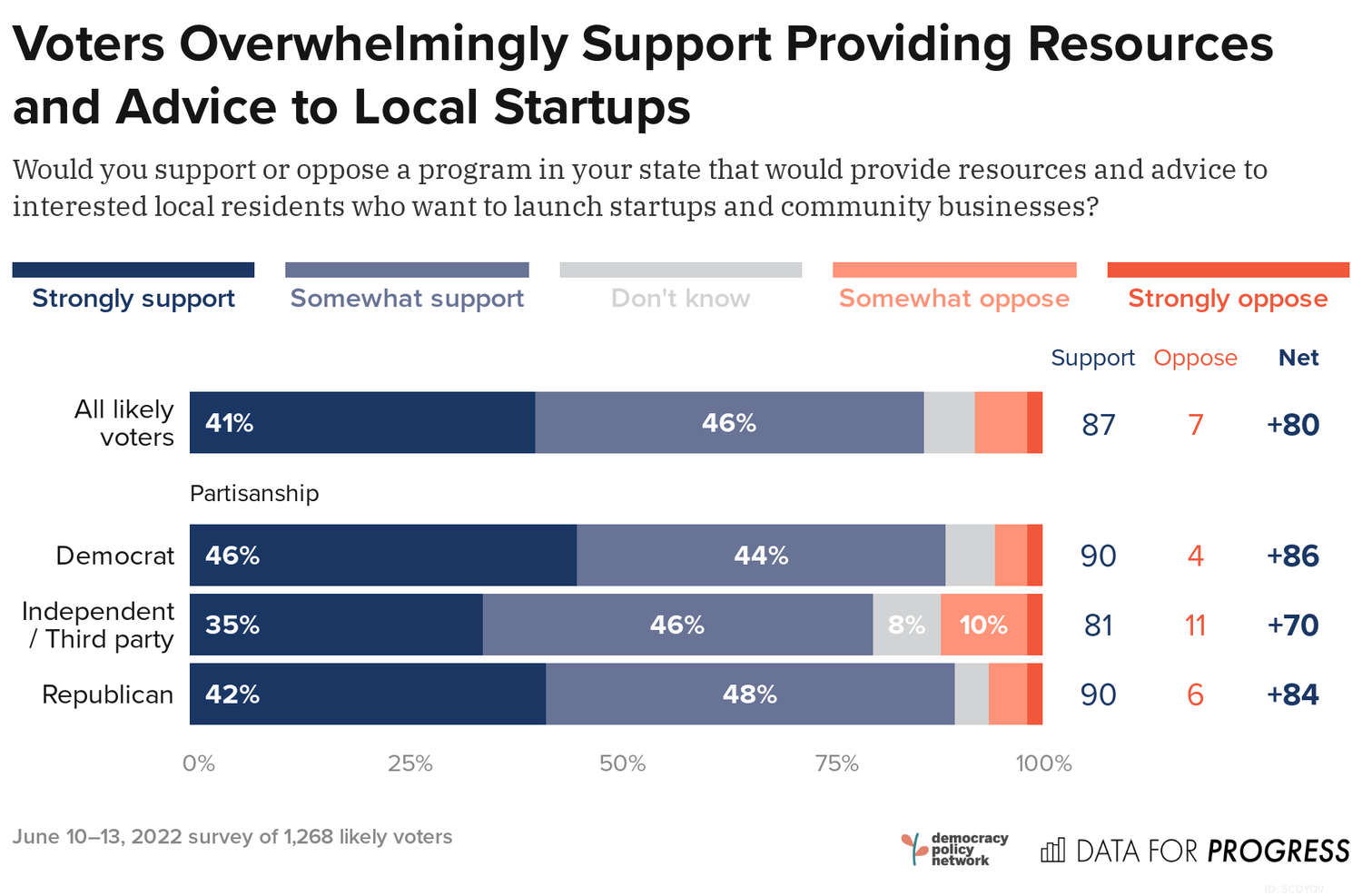
Support is similarly high for state programs to connect local entrepreneurs with funding to launch their businesses. Eighty-seven percent of respondents overall support this proposal, including 89 percent of Democrats, 88 percent of Republicans, and 84 percent of Independents.
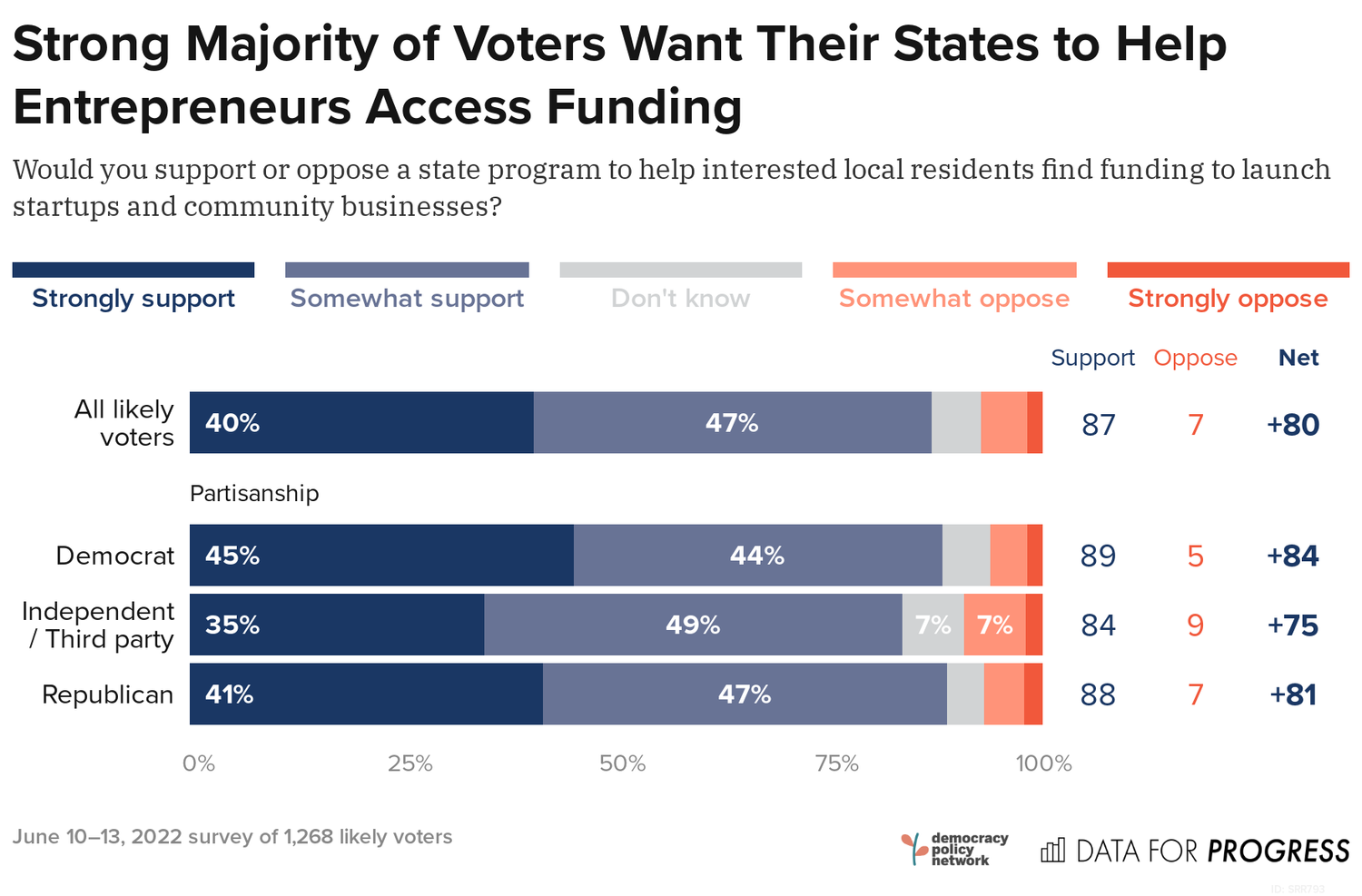
Attitudes toward these policies align with broader ideas about which companies state economies should favor. Three-quarters of likely voters (76 percent) share the view that state economies should make space for local business instead of allowing large companies to box out local entrepreneurs. Eighty-four percent of Democrats, 74 percent of Independents, and 71 percent of Republicans would rather see their states support local business owners than allow large, multinational corporations to run their state economies.

Voters not only support small businesses that already exist, but also enthusiastically endorse opportunities to help local residents begin and grow new startups. Eighty-one percent of voters overall support state-sponsored, local startup incubators — local organizations with resources to help residents launch, finance, and grow startups and community businesses. This includes support from 75 percent of Independents, 77 percent of Republicans, and 89 percent of Democrats.
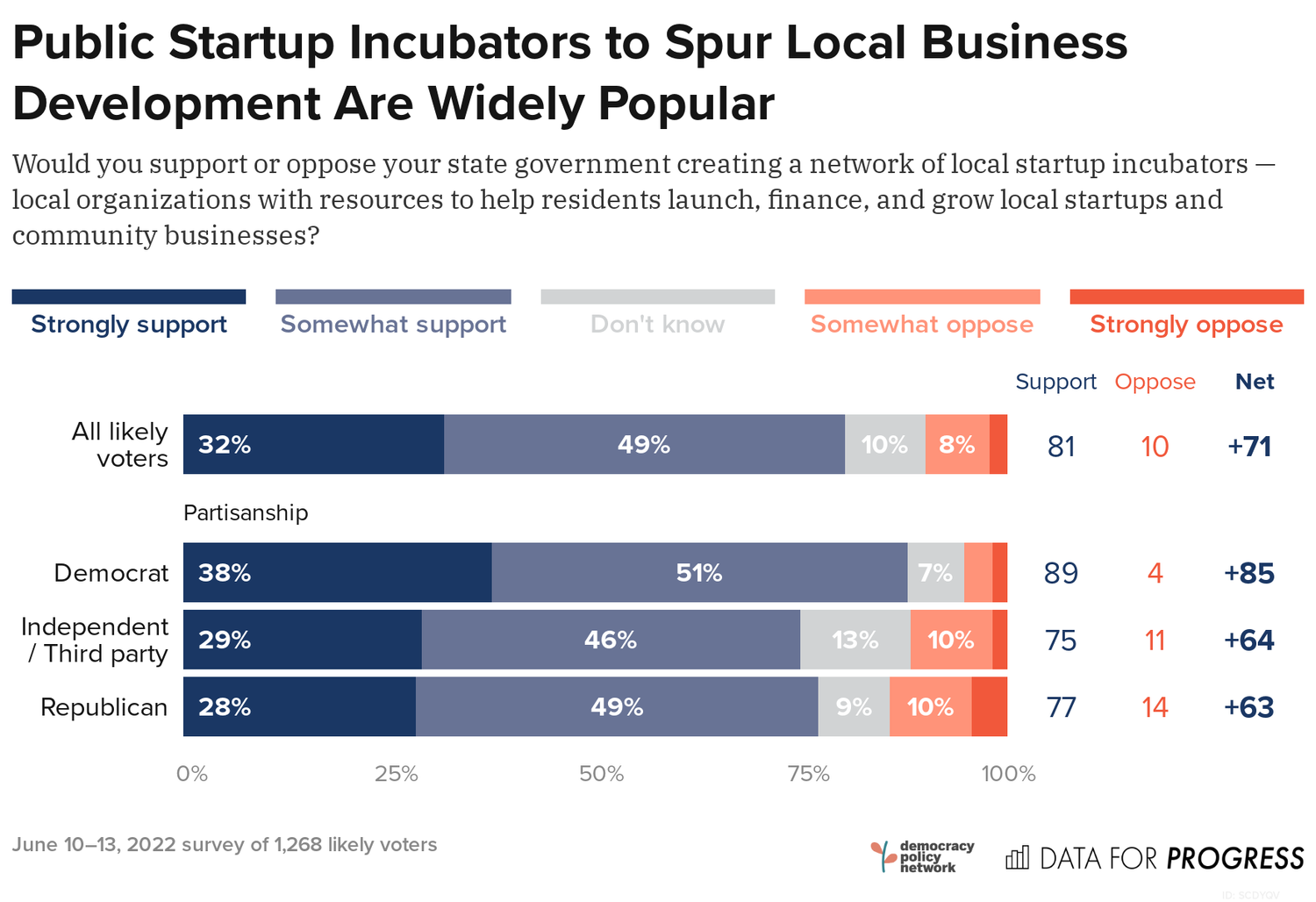
Voters also broadly support policies at the state level to fund local startups and make it easier for individuals to invest in local entrepreneurship. Polling finds that 77 percent of voters support creating public banks to offer low-interest business loans to local entrepreneurs. Additionally, 74 percent of voters support creating public venture capital funds to invest in local entrepreneurs, while 75 percent of voters support creating tax breaks for residents who invest in the local economy.
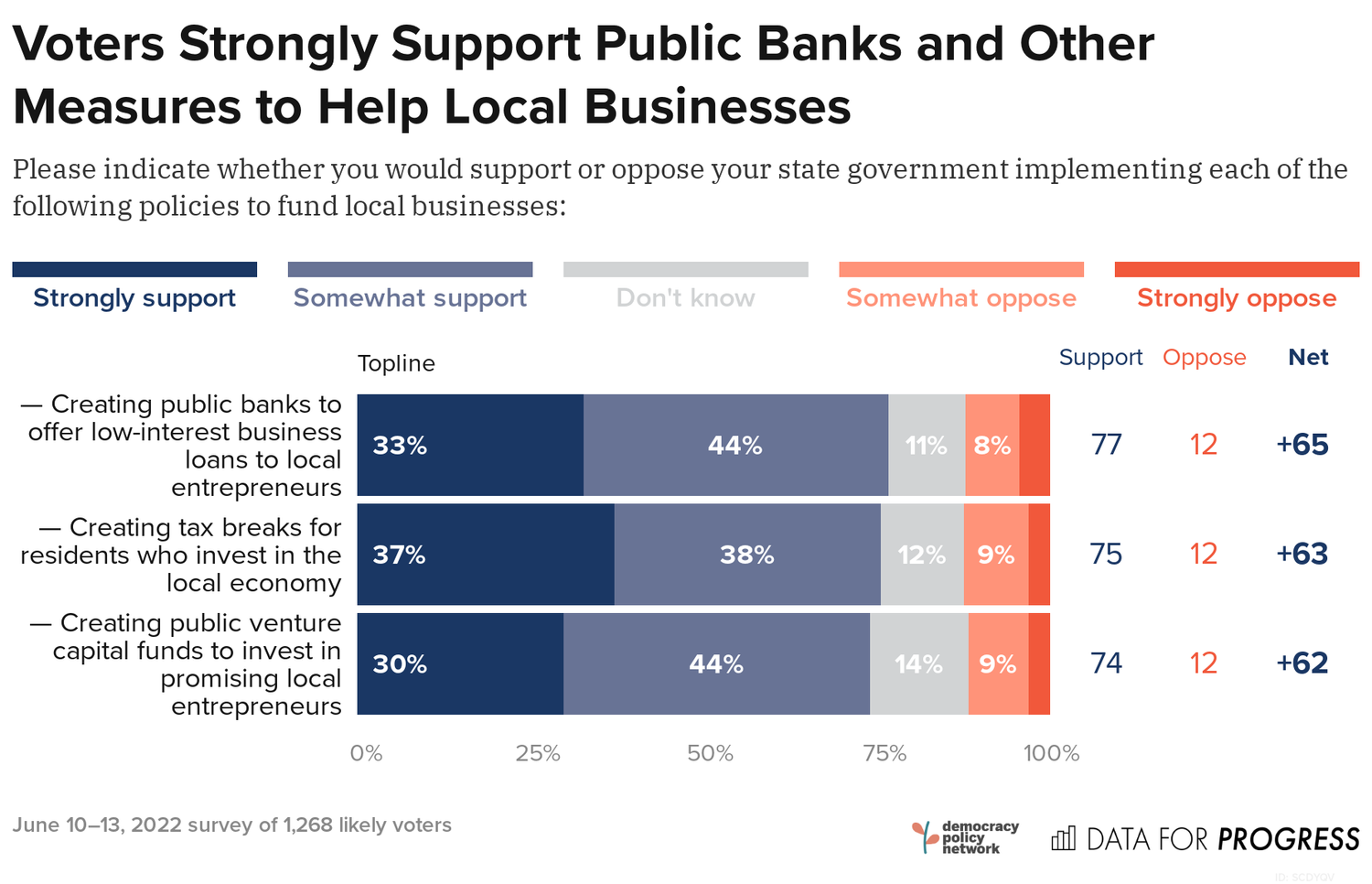
Voters disapprove of the tax breaks, deregulation, union busting, and public subsidies required for “smokestack chasing” to bring jobs to their states. Seventy percent of voters would rather see their state elected officials develop programs to support local entrepreneurs for job creation than turn to incentives intended to attract out-of-state corporations.
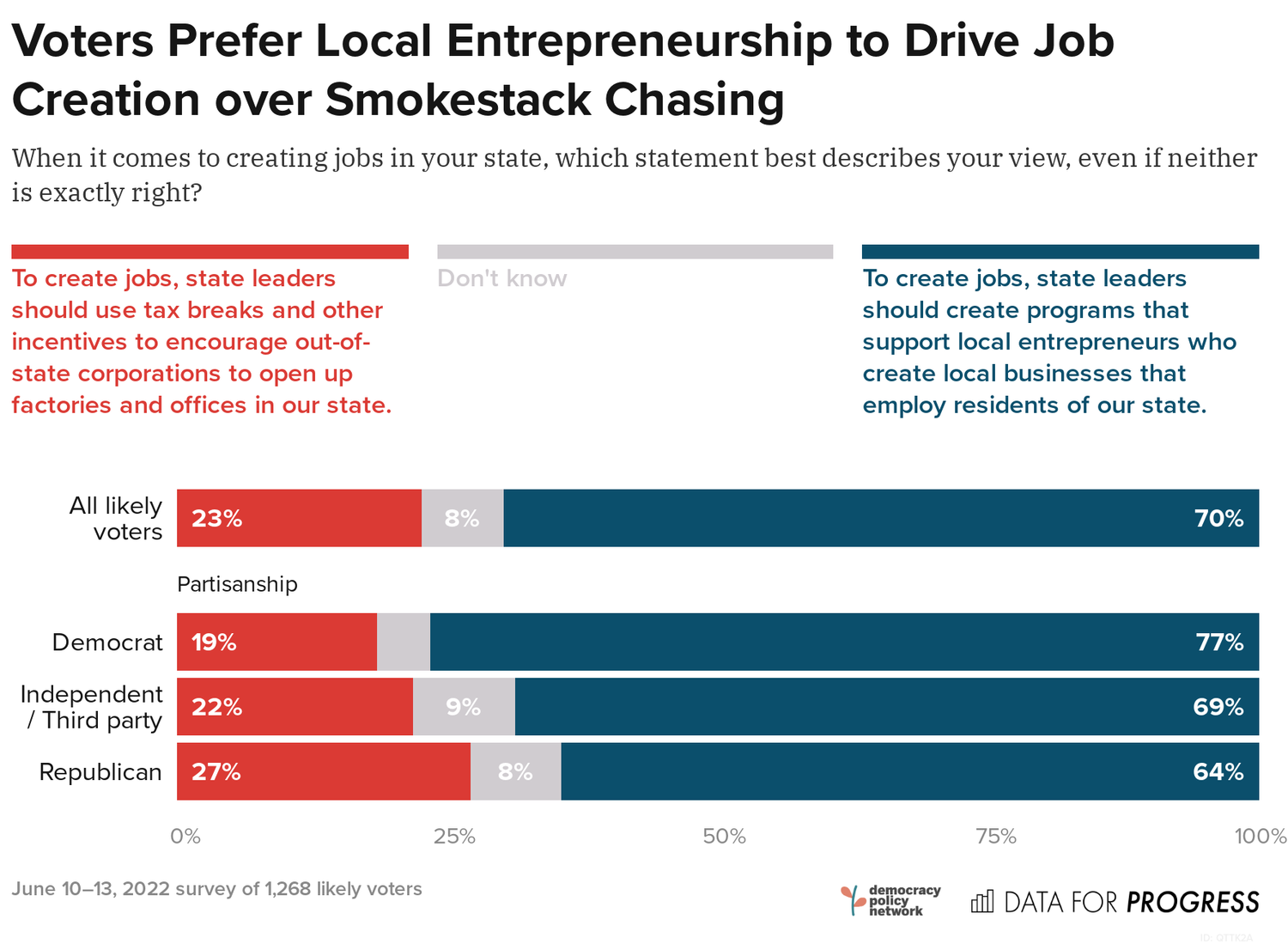
Voters are hungry for an alternative to the same old playbook for job and wealth creation peddled by corporate-sponsored state politicians over the past decades. They do not want to base their state economy’s future on the whims of out-of-state megacorporations — they want to support the development of their own local economy, and they see the state taking a larger role in democratizing production and cultivating local entrepreneurial ecosystems as part of that project.
Pete Davis (@PeteDDavis) is the co-founder of the Democracy Policy Network.
Nourel-Hoda Eidy is the author of the Democracy Policy Network’s forthcoming policy kits on Democratizing Entrepreneurship.
Grace Adcox (@graceadcox) is a polling analyst at Data for Progress.

